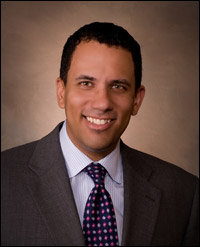Dueling petitions could change bar’s course
By: Jack Zemlicka, [email protected]//February 18, 2011//
Dueling petitions could change bar’s course
By: Jack Zemlicka, [email protected]//February 18, 2011//

The ongoing debate over whether the State Bar should be mandatory is headed to the state Supreme Court.
Steven A. Levine, former bar president, and fellow government lawyer James S. Thiel drafted and filed a petition with the state Supreme Court on Feb. 11 to make the bar a voluntary organization.
But board member Nathaniel Cade Jr., who opposed the move, may file his own petition, he said, asking the court to expand the bar’s responsibilities.
Doing so would further justify the bar’s mandatory status, according to the parameters set forth in Keller v. State Bar of California, 496 U.S. 1, 13-14 (1990), which dictated regulation of the legal profession and improvement of the quality of legal services offered by members of the bar justify an integrated state bar and the collection of mandatory dues to support those activities.
“If we are truly going to be an integrated bar, why not control all of it and let the Supreme Court handle cases,” Cade said. “Otherwise, we’re a trade association.”
But in his petition, Levine said the State Bar of Wisconsin doesn’t meet either of the Keller standards.
“The bar doesn’t regulate anything and Continuing Legal Education is all paid for by the people who buy it, so there is no basis for the bar to be integrated,” he said.
Cade acknowledged the bar doesn’t control CLE, discipline or admissions, but said a petition to expand the bar’s responsibilities could change that.
“I think it’s the stupidest thing in the world to want a voluntary bar,” Cade said.
Attorney Thomas W. Bertz favored a mandatory bar during his unsuccessful bid for president-elect in 2008, but questioned the need for a petition to shift disciplinary oversight to the bar.

As a former member of the Office of Lawyer Regulation, Bertz said he never got the impression that the court was overburdened by the responsibility and doesn’t think a change is warranted.
“I don’t see any real grass roots support for changing what they are doing, and having it as part of the bar would be somewhat cumbersome,” he said.
The debate over whether the bar should be mandatory or voluntary has raged for years and a recent failure to make a decision on the issue irked both supporters and opponents of a voluntary bar, who simply wanted the divisive issue put to rest.
The Board of Governors in June failed to endorse by one vote a planned petition to the Supreme Court seeking a review of the organization’s membership status, essentially ending the discussion at the board level. The lack of action left the contentious issue hanging, said former board member Kevin J. Palmersheim, who served during the most recent discussions.
“I think the fight could be more acrimonious now,” he said.
Levine’s Feb. 11 petition cited a 2008 State Bar membership survey in which 57 percent of members surveyed supported a voluntary bar and noted that since 2005, three of the last six elected president-elects of the State Bar, including Levine, have supported abolition of the mandatory bar.
Palmersheim suggested that if called upon by the court to weigh in on the voluntary bar petition, the board will likely oppose it and further disillusion those lawyers who feel they receive little if any benefit from a mandatory organization.
“I see a continuation of that split and frustration that voluntary bar proponents have with the bar,” Palmersheim said.
Membership status has been at issue for more than half a century, since the Supreme Court ruled in 1956 that the bar would be a mandatory organization.
In 1988, the mandatory bar was declared unconstitutional by a federal district court, a decision which held until 1992, when the decision was overturned and the Wisconsin Supreme Court reinstated the mandatory bar.
Since then, there have been periodic challenges to the constitutionality of the integrated bar.

Most recently, Kingstad v. State Bar of Wisconsin, No. 09-4080 contended that the use of mandatory dues to fund the bar’s Public Image Campaign violated First Amendment rights. In September, the Seventh Circuit Court of Appeals disagreed, but held that bar expenditures funded by mandatory dues must be germane to the legitimate purposes of the bar.
Levine and Thiel joined Jon E. Kingstad as parties in the case, which spawned a petition to the state Supreme Court seeking a ban on the use of mandatory bar dues to finance activities that are not “reasonably intended for the purpose of regulating the legal profession or improving the quality of legal services.”
The dues petition is scheduled for a public hearing April 11.
That case cost the State Bar approximately $20,000 from July 2010 to November 2010 in legal fees, according to the organization’s latest Finance Committee report.
Cade questioned why the petitioners would want to continue the fight, given that they have cost the bar time and money and moving to a voluntary organization could end up being an expensive outcome for individual lawyers. He suggested that doing away with mandatory membership dues could open the door for legislative fees or taxes on legal services.
Levine, a longtime advocate of abolishing the integrated bar, said it is time for the court to decide the issue once and for all.
“Momentum has been building on this for years,” he said, “and if nobody did anything that momentum would just die.”
Jack Zemlicka can be reached at [email protected].
Legal News
- Former law enforcement praise state’s response brief in Steven Avery case
- Eric Toney announces re-election bid for Fond du Lac County District Attorney
- Former Wisconsin Democratic Rep. Peter Barca announces new bid for Congress
- Republicans file lawsuit challenging Evers’s partial vetoes to literacy bill
- More human remains believed those of missing woman wash up on Milwaukee Co. beach
- Vice President Harris returning to Wisconsin for third visit this year
- Wisconsin joins Feds, dozens of states to hold airlines accountable for bad behavior
- Trump ahead of Biden in new Marquette poll
- Bankruptcy court approves Milwaukee Marriott Downtown ‘business as usual’ motion
- New Crime Gun Intelligence Center to launch in Chicago
- Arrest warrant proposed for Minocqua Brewing owner who filed Lawsuit against Town of Minocqua
- Wisconsin Supreme Court justices question how much power Legislature should have
WLJ People
- Power 30 Personal Injury Attorneys – Russell Nicolet
- Power 30 Personal Injury Attorneys – Benjamin Nicolet
- Power 30 Personal Injury Attorneys – Dustin T. Woehl
- Power 30 Personal Injury Attorneys – Katherine Metzger
- Power 30 Personal Injury Attorneys – Joseph Ryan
- Power 30 Personal Injury Attorneys – James M. Ryan
- Power 30 Personal Injury Attorneys – Dana Wachs
- Power 30 Personal Injury Attorneys – Mark L. Thomsen
- Power 30 Personal Injury Attorneys – Matthew Lein
- Power 30 Personal Injury Attorneys – Jeffrey A. Pitman
- Power 30 Personal Injury Attorneys – William Pemberton
- Power 30 Personal Injury Attorneys – Howard S. Sicula











